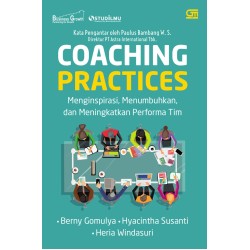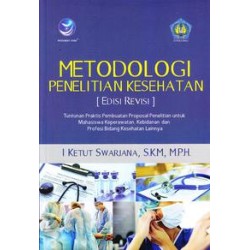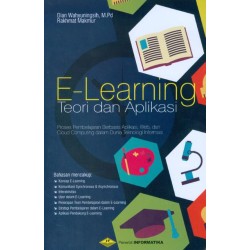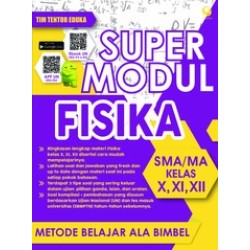

100% ORIGINAL


DISASTER OF INJUSTICE: Relection on Disaster Risk Reduction in Indonesia
- Ketersediaan:
- Penulis: Puthut EA & Nurhady Sirimorok
- Penerbit: INSISTPress
Rp50,000
Rp36,000
| Pengiriman Ke DKI JAKARTA Ongkos Kirim Rp 0 Khusus member Grobprime (GRATIS) | JOIN |
Deskripsi
Description
For the majority of people, a disaster is still considered as a matter of destiny. And it turns out that the ruling class, perhaps because lack of understanding in disaster emergency, preach the story of patience. In the theory of disaster that we believe, we assume that a threat (hazard) will turn into a disaster when it meets with vulnerability and low capacity.
In the last ten years, there is a quantitative and qualitative increase of disaster in Indonesia. But the high frequent disaster hazards that hit Indonesia more often these days do not have strong influence to make people think that indeed disaster can be prevented or avoided. This, however, happens because the disaster management models are still working on sporadic style with low coordination and slow emergency response. And the most significant of this model is, it fails to put the community as the actor of disaster management.
Based on various ideas and issues above, the Disaster Risk Reduction Program, the INSIST’s Building community Resiliency, runs since 2007 with support from CORDAID. This book begins with INSIST’s point of view in perceiving disaster and disaster risk reduction management in Indonesia. While the next section displays field stories from six DRR project areas. Stories written here are not only telling us about the success, but a failure in the community organizing. Because we believe that all success and failure are valuable in learning process.
For the majority of people, a disaster is still considered as a matter of destiny. And it turns out that the ruling class, perhaps because lack of understanding in disaster emergency, preach the story of patience. In the theory of disaster that we believe, we assume that a threat (hazard) will turn into a disaster when it meets with vulnerability and low capacity.
In the last ten years, there is a quantitative and qualitative increase of disaster in Indonesia. But the high frequent disaster hazards that hit Indonesia more often these days do not have strong influence to make people think that indeed disaster can be prevented or avoided. This, however, happens because the disaster management models are still working on sporadic style with low coordination and slow emergency response. And the most significant of this model is, it fails to put the community as the actor of disaster management.
Based on various ideas and issues above, the Disaster Risk Reduction Program, the INSIST’s Building community Resiliency, runs since 2007 with support from CORDAID. This book begins with INSIST’s point of view in perceiving disaster and disaster risk reduction management in Indonesia. While the next section displays field stories from six DRR project areas. Stories written here are not only telling us about the success, but a failure in the community organizing. Because we believe that all success and failure are valuable in learning process.
Ulasan
Rekomendasi Produk Lainnya
Sanken Mesin Cuci 2 Tabung 9 Kg TW-1123GXMesin cuci Sanken 2 tabung / twin tub TW-1123GX deluxe series memiliki kapasitas 9.0 kg denga..
Rp2,025,000
Pernyataan cinta Yui berakhir dengan penolakan dari Yoshizawa. Sementara itu Akira pergi berlibur ke Kyoto tanpa mendapatkan kabar apapun dari Yui.
Mu..
Rp28,800 Rp40,000
Di sini aku ingin belajar pada kelembutan kabut yang bergerak Tanpa mengusik. Aku ingin berguru pada gunung yang tahan Menyimpan dan merawat kerinduan..
Rp28,800 Rp40,000
16 review(s)
Sebuah menara jam menjulang tinggi di tengah kampus. Ada legenda yang mengatakan, ketika jam menunjukkan pukul 11:55, portal menuju dunia lain akan te..
Rp64,080 Rp89,000
28 review(s)
Ayano, anak kelas 1 SMA, jatuh cinta pada Iori, direktur sebuah kantor desain. Setelah Ayano menyatakan cintanya, mereka kemudian pacaran. Tapi ada ko..
Rp18,000 Rp25,000
Novel ini bercerita tentang kisah perjodohan dan percintaan beda budaya, dengan konflik seputar masalah keluarga seperti hubungan antara anak dan oran..
Rp68,400 Rp95,000
Dulu, jenis kamera DSLR hanya digunakan oleh para fotografer profesional. Namun, kini kamera ini seolah menjadi gaya hidup banyak orang. Hasil jepreta..
Rp33,840 Rp47,000
Kemudian, dilengkapi juga dengan ayat-ayat Al-Qur`an dan hadis Rasulullah sebagai pesan dari kisah yang diselipkan. Buku ini berupa komik Islam yang d..
Rp46,800 Rp65,000
Teknologi Switching Analog, Switching Digital, Packet Switching, Teknologi ATM (Asynchronous Transfer Mode), Teknologi MPLS (Multi Protocol Label Swit..
Rp32,400 Rp45,000
Buku Coaching Practi ces akan membantu Anda memahami prakti k nyata coaching melalui contoh-contoh yang dekat dengan kenyataan kerja sehari-hari. Buku..
Rp79,200 Rp110,000
Sebagai seorang ibu baru yang tinggal di sebuah kota mungil di Indiana, Linda Åkeson McGurk yang lahir dan besar di Swedia perlahan menangkap perbedaa..
Rp72,000 Rp100,000
Gideon Cross. Mudah untuk jatuh cinta padanya. Aku mencintainya pada pandangan pertama. Seutuhnya. Mutlak. Menikahinya ibarat impian yang jad..
Rp71,280 Rp99,000
32 review(s)
Halo teman-teman, sudah siapkah kalian berpetualang ke lautan dengan hewan-hewan laut yang menakjubkan? Kalian bisa belajar banyak hal seperti mewarna..
Rp69,840 Rp97,000
Penelitian merupakan bagian dari kegiatan ilmiah yang berperan besar dalam perkembangan ilmu pengetahuan dan teknologi, termasuk kemjuan bidang pendid..
Rp51,120 Rp71,000
Polytron Air Cooler PCA-200DSpesifikasi:2 Cooler Ice PackEasy To Use3 Liter Water TankLED Panel DisplayRemote ControlAirflow 1,566 m3/hPower Comsumpti..
Rp829,000
buku E-Learning Teori dan Aplikasi merupakan sebuah buku yang membahas teori dasar dalam E-learning dan disertai dengan contoh pengaplikasiannya denga..
Rp36,000 Rp50,000
IPA adalah ilmu yang mempelajari alam sekitar dan isinya. Fisika merupakan salah satu ilmu IPA yang berhubungan dengan kehidupan sehari-hari dalam seg..
Rp126,000 Rp175,000
Dengan menggunakan software Scratch, pemahaman pemrograman dapat dipelajari dengan cara yang simple. Drag dan drop, menjadi salah satu teknik dalam me..
Rp69,120 Rp96,000
Kali ini aku berharap kau bisa menganggap diriku sama berharganya, sama belajarnya bahwa kurentangkan waktu mendalami seni melipat luka-luka yang terb..
Rp60,480 Rp84,000




















